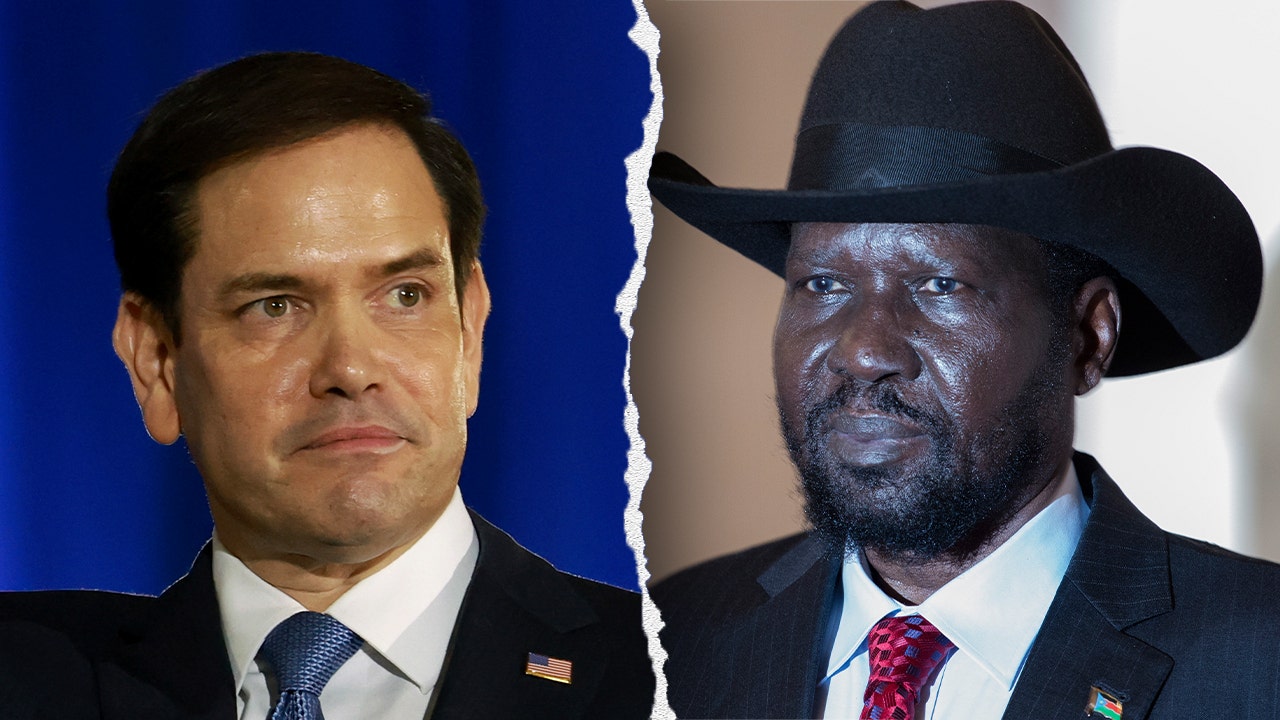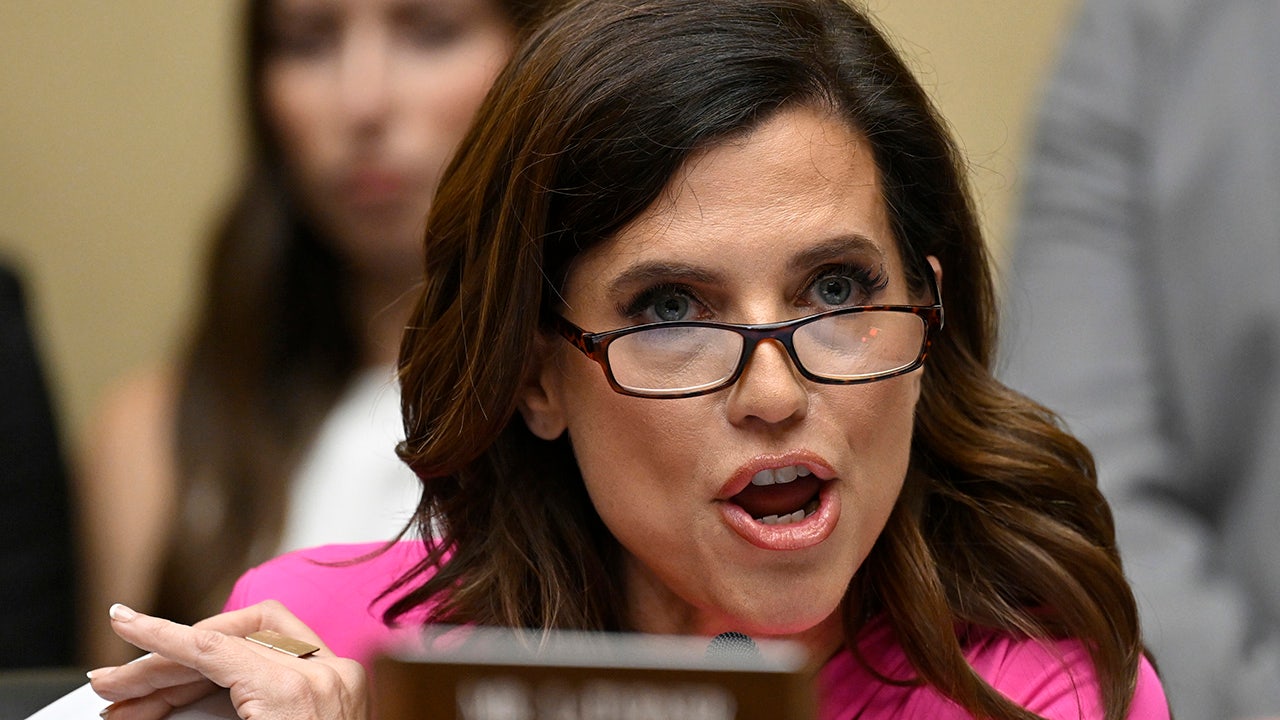Education
A University Fired 2 Employees for Including Their Pronouns in Emails

When Raegan Zelaya and Shua Wilmot decided to include their pronouns at the end of their work emails, they thought they were doing a good thing: following what they viewed as an emerging professional standard, and also sending a message of inclusivity at the Christian university where they worked.
But their bosses at Houghton University, in upstate New York, saw the matter very differently.
Administrators at Houghton, which is affiliated with a conservative branch of the Methodist Church, asked Ms. Zelaya and Mr. Wilmot, two residence hall directors, to remove the words “she/her” and “he/him” from their email signatures, saying they violated a new policy. When they refused to do so, both employees were fired, just weeks before the end of the semester.
Houghton’s firing of the two staff members has dismayed some of its alumni, nearly 600 of whom signed a petition in protest. And it comes as gender and sexuality have become major fault lines in an increasingly divided nation, and after other faith-based organizations, including Yeshiva University in Manhattan, have argued that First Amendment protections of religious freedom allow them to treat gay and transgender people differently than others.
As Republican lawmakers across the country have sought to energize their base by passing laws restricting gender-transition health care and banning drag performances and classroom instruction about sexual orientation and gender identity, Christian colleges have become staging grounds in these escalating debates.
In particular, institutions like Hillsdale College in Michigan and Liberty University in Virginia have taken central roles, both producing and attracting leaders of the movement.
With fewer than 1,000 students, Houghton is smaller and off the beaten track, but it has made other recent moves that put it in line with its conservative Christian peers, and that have alarmed some alumni. Since 2021, it has closed a multicultural student center and an environmental sustainability program and rescinded its recognition of an on-campus L.G.B.T.Q. club after the club declined to more promote conservative views on sex and gender.
“I think it boils down to: They want to be trans-exclusive and they want to communicate that to potential students and the parents of potential students,” Mr. Wilmot said of his firing.
Ms. Zelaya and Mr. Wilmot, neither of whom is transgender, said they had professional and pastoral reasons for including their pronouns, but also a practical one: They both have uncommon, gender-neutral names, and said they have often been misgendered in email correspondence.
“There’s the professional piece to it, and the practical piece, and there’s also an inclusive piece, and I think that’s the piece this institution doesn’t want,” Mr. Wilmot, 29, said.
Michael Blankenship, a university spokesman, said in a statement that Houghton “has never terminated an employment relationship based solely on the use of pronouns in staff email signatures.”
“Over the past years, we’ve required anything extraneous be removed from email signatures, including Scripture quotes,” he said.
In Ms. Zelaya’s termination letter, a photo of which was widely shared online, she was told she was fired “as a result of your refusal to remove pronouns in your email signature” as well as for criticizing an administration decision to the student newspaper.
Houghton University is affiliated with the Wesleyan Church, which teaches that “gender confusion and dysphoria are ultimately the biological, psychological, social and spiritual consequences of the human race’s fallen condition.” It views “adult gender nonconformity as a violation of the sanctity of human life.”
The university maintains a public declaration of its beliefs, describing itself as “solidly Biblical” and saying the teachings of the Wesleyan Church are “central everywhere” on campus.
“Sometimes, this means affirming positions currently called conservative,” Houghton’s statement of belief says. “For example, we privilege the understanding of marriage as between a man and a woman, and the sanctity of life from conception to natural death.”
But Houghton’s statement of belief also expresses some positions that conservatives might disagree with, including an acceptance of women into the priesthood and the belief “that we have significant work to do in healing the scars of racism in America.”
Some alumni said open debate and respect for differing views was what they valued about their time at Houghton. Almost 600 signed an open letter at the end of April protesting the termination of Ms. Zelaya and Mr. Wilmot, as well as other recent university decisions.
“Our overall concern is that these recent changes demonstrate a concerning pattern of failure on the part of the current administration to respect that faithful and active Christians reasonably hold a range of theological and ethical views,” the letter said.
Earlier this month, the university president, Wayne D. Lewis Jr., replied to the alumni letter. He said many of the decisions it mentioned, including the closure of the multicultural center and the sustainability program, had been budgetary moves meant to combat financial challenges brought about by “many years of enrollment and revenue decline and a significant structural budget deficit.”
And while he did not address the firing of Ms. Zelaya and Mr. Wilmot, he did reaffirm the university’s commitment to the teachings of the Wesleyan Church.
“Houghton unapologetically privileges an orthodox Christian worldview, rooted in the Wesleyan theological tradition,” the president wrote. He also noted that university employees were required to reaffirm their “understanding of and agreement to these commitments” at the start of each year.
Molly Connolly, 21, a sophomore and student council member who aspires to become a Wesleyan minister, said the administration’s decisions had caused “a lot of frustration” for students, who she said hold a wide range of political and religious beliefs. She helped organize a prayer vigil and a sit-in where students could voice their concerns, she said.
“People felt it was political and did not align with some people’s interpretation of what it means to be Christlike,” Ms. Connolly said. “This just highlighted how divided people are about politics and identity politics and how people understand gender and sexuality.”
Derek Schwabe, 33, a gay man who graduated from Houghton in 2012, said the campus “was never an affirming place” during his time there. He did not come out until after graduation, and said gay students mostly felt like “if you kept your head down you could survive.”
Nevertheless, Mr. Schwabe thought the administration at the time had taken a more neutral approach toward L.G.B.T.Q. issues, for example by allowing on-campus debates and other activities. For students from conservative families, like himself, those events could be revelatory.
“At the Houghton I knew, there was room for discussion and allowing differences of opinion,” Mr. Schwabe said. “I was exposed to broader viewpoints on these issues than I had been exposed to before. I am sad to see even that level of openness has been curtailed.”
In interviews, Ms. Zelaya and Mr. Wilmot said they believed their dispute with the school boiled down to a difference of opinion over how best to live a Christian life.
They included their pronouns because they wanted to engage with society’s downtrodden as Jesus Christ might have done, they said.
“At the end of the day, it has no bearing on what I actually believe or what I think is a sin or not a sin,” Ms. Zelaya, 27, said. “It all comes down to: Am I loving people in a way that reflects Christ?”
She said she thought their firings were instead motivated by the university’s decision to “toe the party line” and appeal to the conservative political beliefs that dominate the evangelical Christian world.
“We live in a very divided world right now where everything is this or that, right or left, conservative or liberal, Republican or Democrat,” Ms. Zelaya added. “As Christians, I think we’ve gotten so caught up in these ideas of, ‘This is what I should be advocating for or upset about,’ that we forget to actually care for people.”

Education
Harvard Will Not Comply With a List of Trump Administration Demands

Harvard University said on Monday that it had rejected policy changes requested by the Trump administration, becoming the first university to directly refuse to comply with the administration’s demands and setting up a showdown between the federal government and the nation’s wealthiest university.
Other universities have pushed back against the Trump administration’s interference in higher education. But Harvard’s response, which essentially called the Trump administration’s demands illegal, marked a major shift in tone for the nation’s most influential school, which has been criticized in recent weeks for capitulating to Trump administration pressure.
A letter the Trump administration sent to Harvard on Friday demanded that the university reduce the power of students and faculty members over the university’s affairs; report foreign students who commit conduct violations immediately to federal authorities; and bring in an outside party to ensure that each academic department is “viewpoint diverse,” among other steps. The administration did not define what it meant by viewpoint diversity, but it has generally referred to seeking a range of political views, including conservative perspectives.
“No government — regardless of which party is in power — should dictate what private universities can teach, whom they can admit and hire, and which areas of study and inquiry they can pursue,” said Alan Garber, Harvard’s president, in a statement to the university on Monday.
Since taking office in January, the Trump administration has aggressively targeted universities, saying it is investigating dozens of schools as it moves to eradicate diversity efforts and what it says is rampant antisemitism on campus. Officials have suspended hundreds of millions of dollars in federal funds for research at universities across the country.
The administration has taken a particular interest in a short list of the nation’s most prominent schools. Officials have discussed toppling a high-profile university as part of their campaign to remake higher education. They took aim first at Columbia University, then at other members of the Ivy League, including Harvard.
Harvard, for its part, has been under intense pressure from its own students and faculty to be more forceful in resisting the Trump administration’s encroachment on the university and on higher education more broadly.
The Trump administration said in March that it was examining about $256 million in federal contracts for Harvard, and an additional $8.7 billion in what it described as “multiyear grant commitments.” The announcement went on to suggest that Harvard had not done enough to curb antisemitism on campus. At the time, it was vague about what the university could do to satisfy Trump administration concerns.
Last month, more than 800 faculty members at Harvard signed a letter urging the university to “mount a coordinated opposition to these anti-democratic attacks.”
The university appeared to take a step in that direction on Monday. In his letter rejecting the administration’s demands, Dr. Garber suggested that Harvard had little alternative.
“The university will not surrender its independence or relinquish its constitutional rights,” he wrote. “Neither Harvard nor any other private university can allow itself to be taken over by the federal government.”
The government’s letter to Harvard on Friday demanded an extraordinary set of changes that would have reshaped the university and ceded an unprecedented degree of control over Harvard’s operations to the federal government. The changes would have violated principles that are held dear on colleges campuses, including academic freedom.
Some of the actions that the Trump administration demanded of Harvard were:
-
Sharing all its hiring data with the Trump administration, and subjecting itself to audits of its hiring while “reforms are being implemented,” at least through 2028.
-
Providing all admissions data to the federal government, including information on both rejected and admitted applicants, sorted by race, national origin, grade-point average and performance on standardized tests.
-
Immediately shutting down any programming related to diversity, equity and inclusion.
-
Overhauling academic programs that the Trump administration says have “egregious records on antisemitism,” including placing certain departments and programs under an external audit. The list includes the Divinity School, the Graduate School of Education, the School of Public Health and the Medical School, among many others.
“Harvard has in recent years failed to live up to both the intellectual and civil rights conditions that justify federal investment,” the Trump administration letter said.
Last month, after the Trump administration stripped $400 million in federal funds from Columbia University, Columbia agreed to major concessions demanded by the federal government. It agreed to place its Middle Eastern studies department under different oversight and to create a new security force of 36 “special officers” empowered to arrest and remove people from campus.
The demands on Harvard were different, and much more expansive, touching on many aspects of the university’s basic operations.
In Harvard’s response on Monday, it said it had already made major changes over the last 15 months to improve its campus climate and counter antisemitism, including disciplining students who violate university policies, devoting resources to programs that promote ideological diversity, and improving security.
Harvard said it was unfortunate that the administration had ignored the university’s efforts and moved instead to infringe on the school’s freedom in unlawful ways.
The forceful posture taken by Harvard on Monday was applauded across higher education, after universities had drawn widespread criticism for failing to resist Mr. Trump’s attacks more aggressively.
Harvard itself had been under fire for a series of moves in recent months that faculty members said were taken to placate Mr. Trump, including hiring a lobbying firm with close ties to the president and pushing out the faculty leaders of the Center for Middle Eastern Studies.
A Harvard faculty group filed a lawsuit last week, seeking to block the administration from carrying out its threat to withdraw federal funding from the university. Nikolas Bowie, a law professor and secretary-treasurer of Harvard’s chapter of the American Association of University Professors, the group that filed the suit, applauded Harvard’s rejection of the Trump administration’s demands.
“I’m grateful for President Garber’s courage and leadership,” said Dr. Bowie. “His response recognizes that there’s no negotiating with extortion.”
Ted Mitchell, president of the American Council on Education, which represents many colleges and universities in Washington, said Harvard’s approach could embolden other campus leaders, whom he said were “breathing a sigh of relief.”
“This gives more room for others to stand up, in part because if Harvard hadn’t, it would have said to everyone else, ‘You don’t stand a chance,’” said Dr. Mitchell, a former president of Occidental College. “This gives people a sense of the possible.”
He described Harvard’s response as “a road map for how institutions could oppose the administration on this incursion into institutional decision-making.” He added, “Whether it’s antisemitism or doing merit-based hiring or merit-based admissions, the basic texture of the academic enterprise needs to be decided by the university, not by the government.”
Ethan Kelly, 22, a senior at Harvard from Maryland, said that Monday’s message from Dr. Garber was a relief. He said that he and many of his classmates have been concerned that their school would cave to the Trump administration’s demands.
“There’s been so much concern that Harvard would fold under political pressure, especially with how aggressive the Trump administration has been in trying to control higher education,” Mr. Kelly said. Seeing Dr. Garber draw a clear line, he added, was something “that matters.”
Stephanie Saul, Alan Blinder and Miles Herszenhorn contributed reporting.
Education
Trump’s Tariff and Immigration Policies: A Second-Term Power Play

Reporter: Backtracking on tariffs … “I think the word would be flexible. You have to be flexible. I did a 90-day pause for the people that didn’t retaliate.” Reporter: … while doubling down on deportations. “Those monsters can now be hunted down and expelled from this country with speed, force and efficiency.” Reporter: It’s been a volatile week in Washington. “These are real consequences for the American people. This is amateur hour, and it needs to stop.” Reporter: As two of Trump’s signature policies were tested by the markets and the courts, from The New York Times, this is The Roundtable. I’m Zolan Kanno-Youngs with Hamed Aleaziz and Jonathan Swan. All right. So, guys, I feel like a lot has happened this week and especially on two, on these two issues that we’re going to be talking about: tariffs and immigration. So, Hamed, you are an expert on immigration policy, and so much of the policies that we’re talking about goes even further than what we saw in the first Trump term, right? What do you think is the reason for that? I feel like they believe they have a mandate from the American public to carry out a mass deportation campaign. They look at the poll numbers. They see that Americans were not pleased with the way the Biden administration was handling immigration, and they support deportation. So, I think that makes them feel like, OK, this is our time to throw everything against the wall. And at the same time, you have leadership like the D.H.S. secretary, Kristi Noem, who’s very aggressive. The first go-around, we had, obviously Kirstjen Nielsen and John Kelly. These were people who were, compared to other Trump officials, more restrained. And later on, they had career officials running the Department of Homeland Security as well. This go-around, Kristi Noem is willing to do whatever – “To go to a prison in El Salvador while there’s deportees there.” Exactly. “And essentially do a photo op there.” Exactly. “Do not come to our country illegally. You will be removed, and you will be prosecuted. But know that this facility is one of the tools in our toolkit that we will use if you commit crimes against the American people.” Go on ICE raids with ICE agents wearing the tactical gear, carrying weapons. This is something that we’ve never seen before. And I think that’s the main difference, is now the leadership in place is willing to take it. You mentioned the career officials. Is this by design, Jonathan, that you now have a cast around Trump that’s less likely to push back on some of these policies? Very much so. When he left office in 2021, his biggest regret from the first term was who he hired. Just think about it from Trump’s perspective. Term one, comes in, businessman never been in government. Doesn’t really know what he’s doing. Picks a bunch of people who he’s never really met before. A lot of them were Washington establishment-type figures who fundamentally disagreed with him on economics, foreign policy, national security, a number of issues. Trump resents that. He makes a bunch of decisions that he’s later quite angry that he allowed these advisers to talk him into X, Y and Z. So for a second term, he doesn’t want that. He wants to do it his way. And just think about it from his perspective. Everyone has told him you’ll never be president again. You’re finished after Jan. 6. He gets indicted in four different jurisdictions. He gets criminally convicted, he gets shot, and then he becomes president again. Can you imagine the level of confidence that you take into the White House, someone who’s already extremely self-confident? The ability of Trump to overcome all of that, I think, has supercharged his confidence. He has no opposition. Congress is not really – you could hardly describe it as a separate branch. I mean, it is basically Trump staffers. The leadership certainly is doing exactly what Trump wants. He’s not going to get impeached. He’s also immune. The Supreme Court has conferred broad immunity upon him. It’s total impunity and unaccountability. So, Jonathan, if my friend comes up to me at a bar and asks me like, what just happened with this tariff saga with the president, what would you what should I say? Was it a capitulation? What do you think made him freeze, it right? When I think of Trump this Trump term, I think of somebody who hasn’t backed down in some instances and continued to charge forward. What made him in this instance, you and our colleagues on the White House team have been reporting a lot about this. I was having a conversation like a couple of months ago with our colleague Tom Friedman on the opinion desk, and he said, I don’t really believe in politics anymore. But I believe in physics. And I would tweak that quote slightly to say, I believe in the bond markets. OK? Like, Donald Trump was staring down a potential financial panic. “People were jumping a little bit out of line. They were getting yippy, you know? They were getting a little bit yippy, a little bit afraid.” All the signals were highly alarming to his team. There was basically a loss of confidence in America and a sense that this could really spiral out of control into a full-blown crisis. I mean, $10 trillion was wiped out of the stock market. You know, that’s a bit of pain to endure. But Donald Trump doesn’t want to be the person held responsible for a recession. That’s what drove this decision. It was a fear-driven decision. All his aides are now out there saying this was the strategy all along, the plan all along. “This was his strategy all along.” “This was not a walk-back. This was not something that the bond markets were cratering and you were worried about it.” Total garbage. Total. Yeah. Like, let’s be, like, let’s be respectful of our audience. Completely absurd. This was forced upon them by really serious concerns about financial panic. “I haven’t spoken to the president since. .. “So the trade representative hasn’t spoken to the president of the United States about a global reordering of trade.” “Yes, I have. And I’m in a hearing with you, sir. …” “But yet he announced it on a tweet. WTF?” I saw various Democrats pointing to Trump’s Truth Social post in the morning where he seemed to say, paraphrasing, but now is the time to buy. We had a bunch of different Democrats saying, accusing the administration of market manipulation. “We need to get to the bottom of the possible stock manipulation that is unfolding.” “I think we need a full, independent investigation into who was trading, who made money, who knew what and when they knew it.” I wonder if this moment could be one that also prompts the Democrats to sort of coalesce around a unified message, because they’ve kind of been picking their punches thus far. It seems like they’ve been cautious thus far. What do you think? Yeah, I still await evidence that the Democrats can get their act together. If there’s ever an opportunity, it’s the economy. And when you talk to a lot of Democratic strategists, their analysis, a lot of mainstream Democratic strategists, their analysis of the election was we lost the debate on immigration. We lost the cultural debate. But they all acknowledged that if prices stay high, if the economy is wobbly, if families are feeling stressed, that this is a real danger zone for Donald Trump. And remember, it’s true that many Americans don’t own stocks, but a lot of people are invested in the stock market through their 401(k)s, and there was, again, the reason Donald Trump made this decision is this could have bled into the real economy. If the economy is one issue that the president, you could argue, won the election on, the other is immigration here. So do you think like this expansion that we’re seeing is an effort to sort of make good on political promises, or is there something more there in terms of the motive? I think they’re trying to make people feel uncomfortable. I think they are not so far, they have not conducted a mass deportation campaign. The numbers that were promised during the campaign have not been realized and are not on track to be realized. How do you get there? You get people to feel uncomfortable and decide to leave on their own accord. That’s why you’ve seen lately them talk about self-deportation repeatedly, right. You see them say, don’t make us come to your home and arrest you. Leave , leave by yourself. And this is a message that Tom Homan is spreading. This is a message that the D.H.S. secretary, Kristi Noem, is spreading. “So we will help you buy your plane ticket and your travel documents so that you can go today.” That is potentially their only way of getting to those high numbers. One thing we haven’t talked about yet is the administration’s use of this wartime authority to continue to try to deport Venezuelans with little to no due process. This law we’re talking about, the Alien Enemies Act, we’ve had some back and forth with the courts here. But I think one thing is clear is this administration is not going to shy away or back down from using this policy at this point. They’re still determined to continue to use this, right? Definitely. I think this is something that they’ve been planning to use for a while, and they feel like the path has been laid for them to continue to use it. And it helps a lot. Ultimately, it’s very helpful to deport people without little, without much due process, because that due process bogs down the system and makes it harder to get those deportation numbers up. Are you hearing from anyone on the inside who’s uncomfortable with what they’re seeing, rattled by what they’re seeing thus far? Definitely. It feels like for folks that I’ve talked to a sense of, you know, what’s next. What else are we going to be asked to do. What was surprising to me was seeing him target college students. These students who have protested on campuses, pro-Gaza protesters that the Trump administration targeted, picked up. And these were people who were here with green cards, visas, and they were thrown into ICE detention. And the administration right now is arguing that we need to remove them because it serves foreign policy of the United States. This is something I had never heard of before. And one thing that’s much different this time, I would say as well, is the general attack on federal employees is also on D.H.S., the D.H.S. secretary has talked about repeatedly that they will root out leaks. And one way to do that is to polygraph people. That didn’t happen the first Trump administration. And at the same time, there’s a real fear around losing their jobs, people losing their jobs through the general reduction in force that Elon Musk and others has pushed. So you have a really, a bad culture right now at the department. People feeling uneasy on all levels. Is that culture, that same sort of anxious vibe, inside, is that shared by some of the president’s economic advisers or is it just full loyalty? Scott Bessent, the Treasury secretary, was not thrilled, to say the least, about the tariff roll-out last week and the aggressiveness and the breadth of the tariffs. I mean, even a person like Howard Lutnick, the Commerce secretary, who publicly is a cheerleader for the tariffs, privately was arguing strenuously for more exemptions. So yeah, 100 percen, there are disagreements and tensions on the team. But nobody’s arguing for no tariffs. No one who’s working for Donald Trump at this point is like, Oh you know what? Maybe we could talk him out of this tariff thing. It’s like, no, no, that ship has sailed. So it’s arguments that are about the level of the tariffs, the breadth of the tariffs, the targeting, et cetera. No one’s saying, sir, we shouldn’t do tariffs. So if that’s the feel from his economic advisers, Jonathan, I know one thing you’ve been tracking too is the response from the business community when it comes to these tariffs, whether it’s some private law firms, the private sector too. What’s the business community’s reaction been so far to this saga? Well, I mean, they hate the tariffs, of course. But if you’re a C.E.O. with any perception or intelligence, you realize that attacking Donald Trump publicly, while it might be principled, is probably not going to get you a good outcome. And what we’ve seen taking, setting tariffs aside for a second, I mean, this parade of business people offering him money, Jeff Bezos, Mark Zuckerberg, it’s pretty clear that they’re all worried about him targeting them. And the Trump people weaponized this very effectively. They monetize it, actually. It’s not just that Trump collects the million-dollar check for his inauguration. His people will then hit them up again, phone call and say, hey, it’d be real nice if you gave us $10 million for our PAC. I mean, it’s just basically saying, hey, guys, you might want to give us some money. I mean, the law firms is just brazen and Trump. I mean, Trump’s very proud of it, which is basically, we are going to go after you unless you promise us – the number keeps going up, I think it’s now like 100 million, $125 million worth of pro bono work to support our causes. “So I have a lot of legal fees I could give to you people, but, and we might as well use them. Hopefully I won’t need that many legal fees or that much. I may.” I mean, this is astonishing. What’s astonishing, just in terms of comparing this to term one, I mean, I remember the word resistance getting thrown around so much, remember law firms filing lawsuits. To see it to this level, where now you’re seeing this money go out. But it’s something else on the thing we’re working on, myself and a number of my colleagues is: term one, his retribution was haphazard. It was often informal, off the cuff. A lot of it was done secretively. Now it’s just, it’s streamlined. It’s formalized. It comes in the form of public presidential decrees. He signed executive orders directing his government to examine the activities of two of his critics who used to work in his administration, Chris Krebs and Miles Taylor, former D.H.S. official, too. He just named them. Just named them. It’s very out in the open, and the message to his critics and his adversaries is, you could be next. All of these pre-emptive capitulations that you see, it’s just how can I get out in front of this. How can I not be next. How much of that is a motive behind his tariffs. Does Donald Trump also just like the action of threatening tariffs, hanging it over nations and watching to see what they’ll do. As we talk about retribution, as we talk about Trump asserting his power over these various aspects of society, just how much of the tariffs are actually about him kind of wanting to see these countries come to the White House begging? I think two things can be true. I think it’s indisputably true, Trump says it himself, you can see how much he’s enjoying, he says they’re all kissing my ass. They’re all coming and begging – real quote, by the way “I’m telling you, these countries are calling us up, kissing my ass. They are. They are dying to make a deal. Please please, sir. Make a deal. I’ll do anything. I’ll do anything, sir.” He literally said that on the record. And he loves this, I call it a begging economy that he’s kind of created. But it’s also true that he’s been talking about tariffs for 40 years. And it’s an issue he actually does have a belief in, a deep belief in and a pretty consistent belief in, which is unusual for Donald Trump in that he believes that foreign nations have been ripping America off. America has been led by stupid people who’ve squandered American wealth, squandered American jobs. And he sees tariffs as this almost magic solution for – there’s no problem that can’t be solved with a good tariff. If it’s that central to his identity, going back to his business days, too, is he listening to anybody on it? It’s not that he’s not listening to anyone. Obviously, what they saw in the markets caused him to have a pretty dramatic reversal. But it took the blinking red lights for him to pull back. What about on immigration? Who does the president listen to? We, us three talk about this a lot. Let’s tell folks who are the inner circle that can really advise the president on immigration? Well, I think Tom Homan is a key figure. This is somebody that President Trump has talked about fondly for years. During the first Trump administration, President Trump was talking about him repeatedly when Mr Homan was running ICE. He sees him as one of the loyal figures in the administration. And he’s the, I think he sees Homan as somebody who knows his stuff, who’s a lawman, who’s been in federal law enforcement for decades and believes in the Trump policies, in cracking down, in mass deportations. Who else, who else in terms is the president…. Stephen Miller is the architect. Yeah, he’s the architect. And he has the longest exposure to Trump on this issue. I mean, when Stephen Miller came onto the campaign in 2015, he traveled around with him, was a very small team, and he has been obsessed with immigration since he was a high school student. And the issue looms so large for him above every other issue. I mean, Stephen Miller is in charge of all domestic policy from the White House, deputy chief of staff in charge. That’s a difference from first time. He has broader power, much more power. But for Stephen Miller, every issue always links back to immigration. A lot of what he told us on the record then is what they’re exactly what they’re doing right now. And Trump trusts him. He’s got his ear. You could make a case that he is the most powerful, if not one of the most powerful unelected people in the country. I mean, he’s the most powerful unelected people in the country – 100 percent – and do you think he distinguishes between legal immigration and illegal immigration? He definitely distinguishes between them. But there are certain categories of immigrants that are legal, but Steven views as illegitimate. Steven Miller views like a temporary protected status or something like that. They would view them all generally as people who shouldn’t be in this country. The student visa, kind of I think, almost factors into that description, too, because one thing that we’ve heard a lot from Trump’s aides is, as this crackdown has gone on, they’ve said, look, a student visa is a privilege. It is a privilege that can be revoked. As, and we’re seeing it revoked when – Which is true – Obviously, like obviously true. No one’s suggesting what they’re doing is illegal, is it, on the student visa stuff? I suppose there’s a free speech component to it. Yeah, I mean, some of this is going to be tested in federal courts, is whether or not you can broadly say that you can take away somebody’s green card because the secretary of state says so. Yes, it’s true that you can revoke a student visa, that you can rescind a green card if you’re charged for a crime, a violent crime. But what we’re seeing here are also college students that have participated in protests, pro-Palestine, anti-Israel protests in some cases, and we lack evidence for a lot of these cases because the administration hasn’t presented it or provided it. It does seem to be a free speech issue. Here again, they’re citing another obscure statute that basically says that these folks engaged in activity that undermined U.S. foreign policy. Therefore, we will rescind your student visa, rescind your green card. That seems very broad to me. Activity that undermines foreign policy. They’ve argued antisemitism thus far. But are your sources telling you how much further they could take the use of that statute? I haven’t heard that yet, but I think you’re right, that that statute could be used broadly. And I think it’s important to think about this. The way they’re talking about these people is in the frame of threats, terror threats. These are people who are terrorist sympathizers, who are potentially liable to do damage to our country. But when it comes to this provision being used, we’ve never really seen this be used on a repeated basis like we’ve seen in the last few months. It’s completely new. Totally new. There have been a lot of local stories across the country about college students losing their visas. Outside of the context of what we heard a few weeks ago, where people were getting their visas revoked for protesting, this appears to be a broader effort where hundreds of students and campuses across the country are getting their visas revoked, and there is no clarity or transparency from the government on what this is all about. And what specifically is happening is something that really has not been answered yet, and it’s causing mass panic amongst international students. You’re talking beyond just the protests? Definitely beyond the protest, beyond the protest. This is where on campuses where there wasn’t a mass, mass protest happening, right. What we’re seeing in almost every state, I mean, we’re hearing about this every single day. I know we’re reporting nonstop. But appreciate you guys joining. Jonathan Swan, Hamed Aleaziz, thanks so much. Thanks for having us.
Education
Air Force Academy Stops Considering Class Diversity in Admissions Process

The Air Force Academy has stopped taking the race, gender or ethnicity of applicants into consideration, the Justice Department stated in a filing Friday responding to a lawsuit that accused the institution of discrimination for making class diversity a factor in its admissions process.
In the filing, Justice Department lawyers said that Gwendolyn R. DeFilippi, acting assistant secretary of the Air Force for Manpower and Reserve Affairs, issued a memorandum in early February eliminating “quotas, objectives, and goals based on sex, race or ethnicity for organizational composition, academic admission, career fields, or class composition” from its admissions considerations.
The Air Force Academy, in Colorado, is the second military academy to adopt such a change to how it reviews applications. Last month, in a similar filing, the Justice Department stated that the Naval Academy’s superintendent, Vice Adm. Yvette M. Davids, had issued similar guidance in February dictating that “neither race, ethnicity, nor sex can be considered as a factor for admission at any point during the admissions process, including qualification and acceptance.”
Both filings sought to postpone hearings in their respective court cases while the policies took effect and offered to provide the court with status updates after 60 days. The changes were first reported by Reuters.
Justice Department lawyers explained in the filings that the changes were carried out to adhere to a Jan. 27 executive order in which President Trump said that “every element of the Armed Forces should operate free from any preference based on race or sex.” Both lawsuits were filed before Mr. Trump took office.
The filings also refer to a Jan. 29 memorandum issued by Secretary of Defense Pete Hegseth which, using an abbreviation for the Department of Defense, ordered that “no DoD Component will establish sex-based, race-based, or ethnicity-based goals for organizational composition, academic admission, or career fields.”
-

 Politics1 week ago
Politics1 week agoDems slam Elon Musk, Melania Trump with xenophobic attacks: ‘Go back to South Africa!’
-

 News1 week ago
News1 week agoFiring of National Security Agency Chief Rattles Lawmakers
-
News1 week ago
Trump goes all in with bet that the heavy price of tariffs will pay off for Americans
-

 Politics1 week ago
Politics1 week agoUS revokes all South Sudan visas, bars future issuance until deportees accepted
-

 News1 week ago
News1 week agoAnti-Trump Protests Get Underway Across the Country
-

 Politics1 week ago
Politics1 week agoH2Go: How experts, industry leaders say US hydrogen is fuel for the future of agriculture, energy, security
-

 News6 days ago
News6 days ago3 Are Killed in Shooting Near Fredericksburg, Va., Authorities Say
-

 News1 week ago
News1 week agoAmericans Wrestle With How Trump’s Tariffs May Change Shopping Lists














